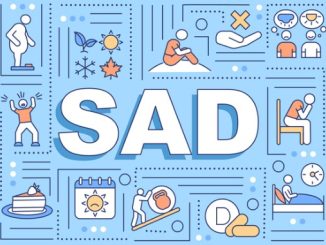
A survey of RCGP Scotland members has revealed GPs are concerned that mounting workload pressures will negatively affect their ability to deliver patient care during winter
A total of 73% of GPs responding to the College’s Annual Tracking Survey admitted to being worried that their workloads would negatively affect their ability to provide care for their patients in the coming months. This figure is unsurprising given that 84% of GPs surveyed said they felt like their workload increases during the winter season compared to other times of the year.
Joint chairs of the College – which represents a network of around 5,000 GPs in Scotland – said they are “extremely concerned” over how GPs and their teams will cope over the winter period.
Dr David Shackles, joint chair of RCGP Scotland and a practising GP based in Tayside, said: “The winter period always brings increased pressure for general practice, particularly with the added challenges of the COVID-19 pandemic, which has seen GPs and their teams working beyond capacity for months on end.
“GPs work incredibly hard in challenging circumstances to meet the demand from patients all year round, however it is clear from these survey findings that GPs simply do not have the capacity to take on any further workload increases, particularly when there are already significant staffing challenges.
“Traditionally, over the winter period, there is no doubt that GP workloads increase, and we are extremely concerned about the impact this is likely to have on practice staff who are already finding it difficult to cope this year.
“Staff are exhausted and under-strain – that’s why retaining our GP workforce is our biggest priority right now. Our survey has also showed that 38% of GP respondents think it’s likely they will leave the profession over the next five years – we simply cannot afford to lose any more GPs than we already have.
“We continue to call for measures such as protected time for GPs and practice teams to come together during the working week to learn, collaborate and develop to help in the shorter term.
“To mitigate the significant challenges being faced in general practice longer-term, we need commitments for solutions to the workforce crisis, such as increased resource and workforce planning carried out in Whole Time Equivalent (not headcount) numbers with a credible plan in place to reach these targets. This would provide a more accurate reflection of the GP workforce as it takes into account the working patterns of GPs. This measurement is used in other areas of the health service to ensure that the workforce can be adequately planned. Bolstering our workforce will help to reduce workload pressures in general practice and improve the patient experience.”
Leaders of the College also expressed concerns that the figures, taken from RCGP Scotland’s Annual Tracking Survey earlier this year, are likely to have increased over time after an exceptionally busy summer.
A total of 81% of GP respondents also admitted that it feels like increasing numbers of patients are seeing their GP every winter. Throughout the year, 70% of GPs responding to the survey reported working longer than they are contracted for, and 28% of GPs feel so stressed they can’t cope at least once or twice a week or more often. Yet more than half of GPs (56%) said they didn’t feel their patients understood that it can be harder to get a GP appointment during winter.
Joint Chair Dr Chris Williams, a practising GP in Grantown-On-Spey, said: “With winter looming, GPs and their teams are already bracing themselves for a particularly tough few months ahead and the cracks are already starting to show More than half of GP respondents (54%) expect working in general practice to get worse over the next few years, with 56% of these citing workload and demand factors. Unfortunately, capacity issues and system-wide workforce shortages are also likely to impact patients trying to access services across the NHS.
“This is why we would strongly encourage patients to consider the important ‘3 Before GP’ message, which refers to the appropriate options that patients should consider before contacting their GP. There are a variety of options available – self-care, looking on NHS Inform, speaking to someone at a local community pharmacy and using the NHS Pharmacy First Scotland service – when appropriate. But it is important to remember that if you think you need medical attention from your practice team, or if symptoms don’t improve, then please do not hesitate to seek advice from your GP practice.
“This winter COVID-19 poses additional risks to public health. One way that patients can help to alleviate the pressure on our teams in the coming months would be to ensure that they receive their vaccinations, which remains our strongest protection against the virus. NHS Inform remains updated with the latest information about vaccines and boosters. Patients should check the website if they have any questions about receiving these, rather than contacting their GP practice. In much of Scotland, the COVID-19 booster and flu vaccination programmes have been transferred to Health and Social Care Partnerships and are no longer given by GPs or their practice staff.
“It is also more important than ever for patients who are offered a flu vaccine ensure they receive this. More information about who is eligible for a flu vaccine is available on NHS Inform or on 0800 030 8013.”


Be the first to comment